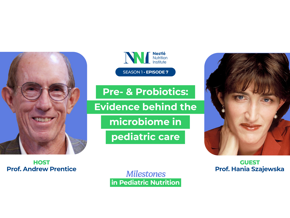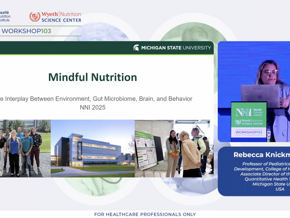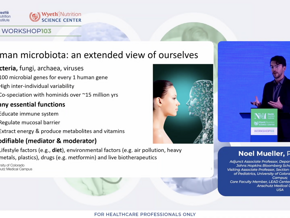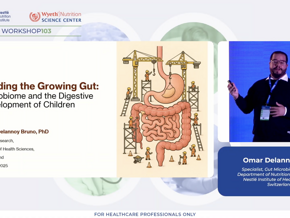Human Milk Oligosaccharides may play a role in Childhood Obesity Prevention?
A recent literature review from September 2019 by Sarah Maessen from the Liggins Institute, University of Auckland, New Zealand, and Aristea Binia from the Institute of Health Sciences, Nestlé Research, Lausanne, Switzerland, along with colleagues from other institutes suggested that currently there is no strong evidence for the effects of human milk oligosaccharides (HMOs) on growth and obesity.
Childhood obesity is a global issue, which has long-lasting consequences on health and well-being. Breastfeeding is thought to be preventive against obesity, but the mechanism of action is not well-understood. HMOs are unique, complex oligosaccharides that are abundant in human milk. They are associated with the development of the infant gut microbiome and immune system. Recently, HMOs are discussed as a potential link between breastfeeding and lower obesity risk.
The authors conducted a literature review to evaluate the evidence of a potential association of HMOs with childhood obesity. To date, only a few human studies have investigated the role of HMO composition in breast milk on babies’ growth parameters during the first year of life, with conflicting results. One reason could be that these studies did not account for other factors known to be important for babies’ growth, such as the level of fat, protein and micronutrient content in breast milk, nor their total caloric intake.
Human milk is complex and dynamic in nature, due to which, an infant formula supplemented with a single or small number of HMOs has the ability to clarify the role of HMOs. So far, no differences have been found in the growth of babies fed with non-supplemented infant formula and formula supplemented with the HMOs, 2′fucosyllactose (2′FL) and lacto-N-neotetraose (LNnT). Similarly, a whey-based, extensively hydrolysed formula supplemented with 2′FL and LNnT is found to be safe, supports normal growth and is well-tolerated in babies with cow’s milk protein allergy.1
From the limited number of studies conducted to date, there is currently no consistent strong evidence for the effects of HMOs on growth and obesity. More data from longitudinal studies may clarify the role of HMOs and other breast milk components in long-term.
Reference: 1. Vandenplas Y, Zolnowska M, Berni Canani R, et al. Growth, tolerance and safety of an extensively hydrolyzed formula containing two human milk oligosaccharides in infants with cow’s milk protein allergy. Abstract presented at the Pediatric Allergy and Asthma Meeting; October 17-19, 2019; Florence, Italy.
If you liked this post you may also like



